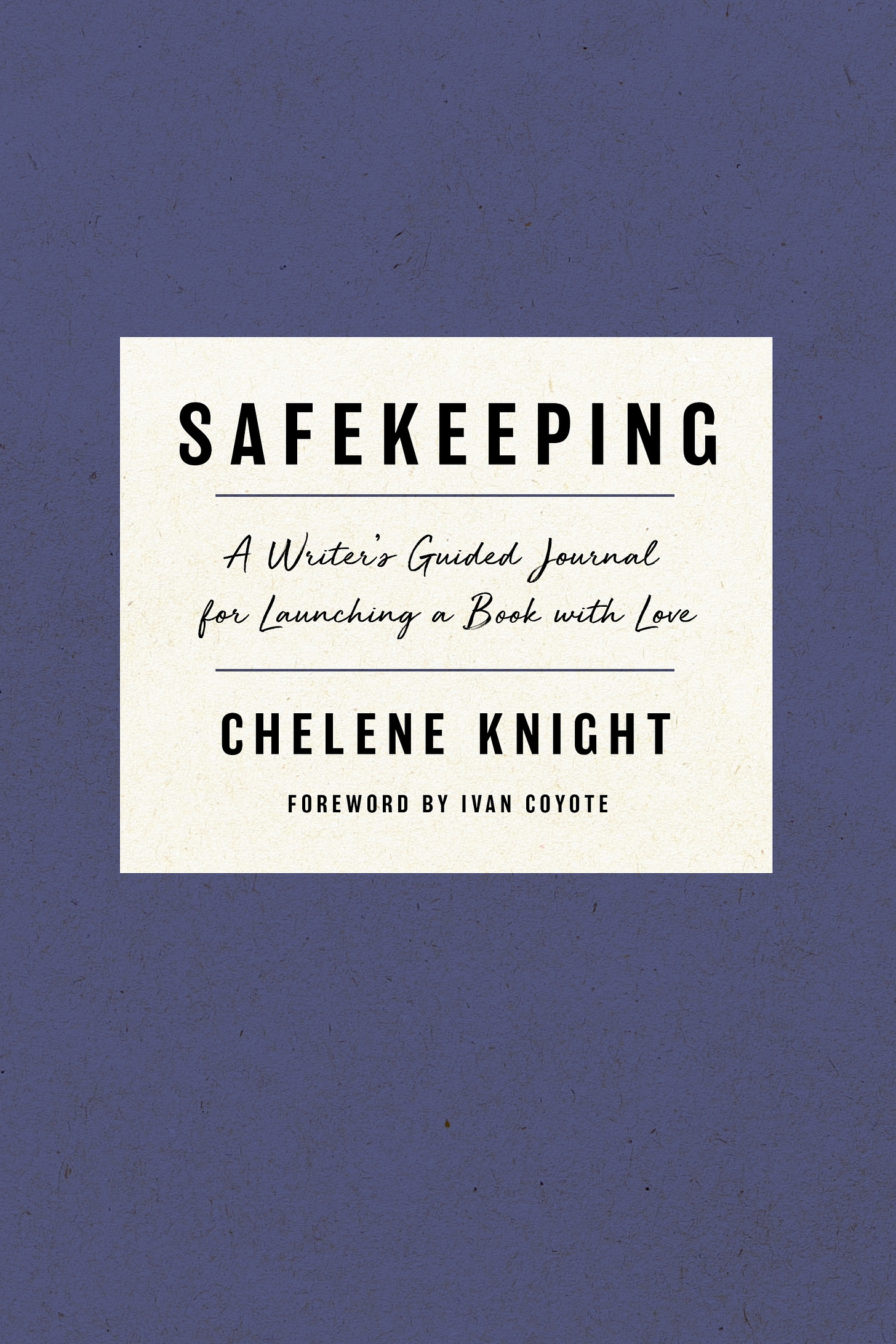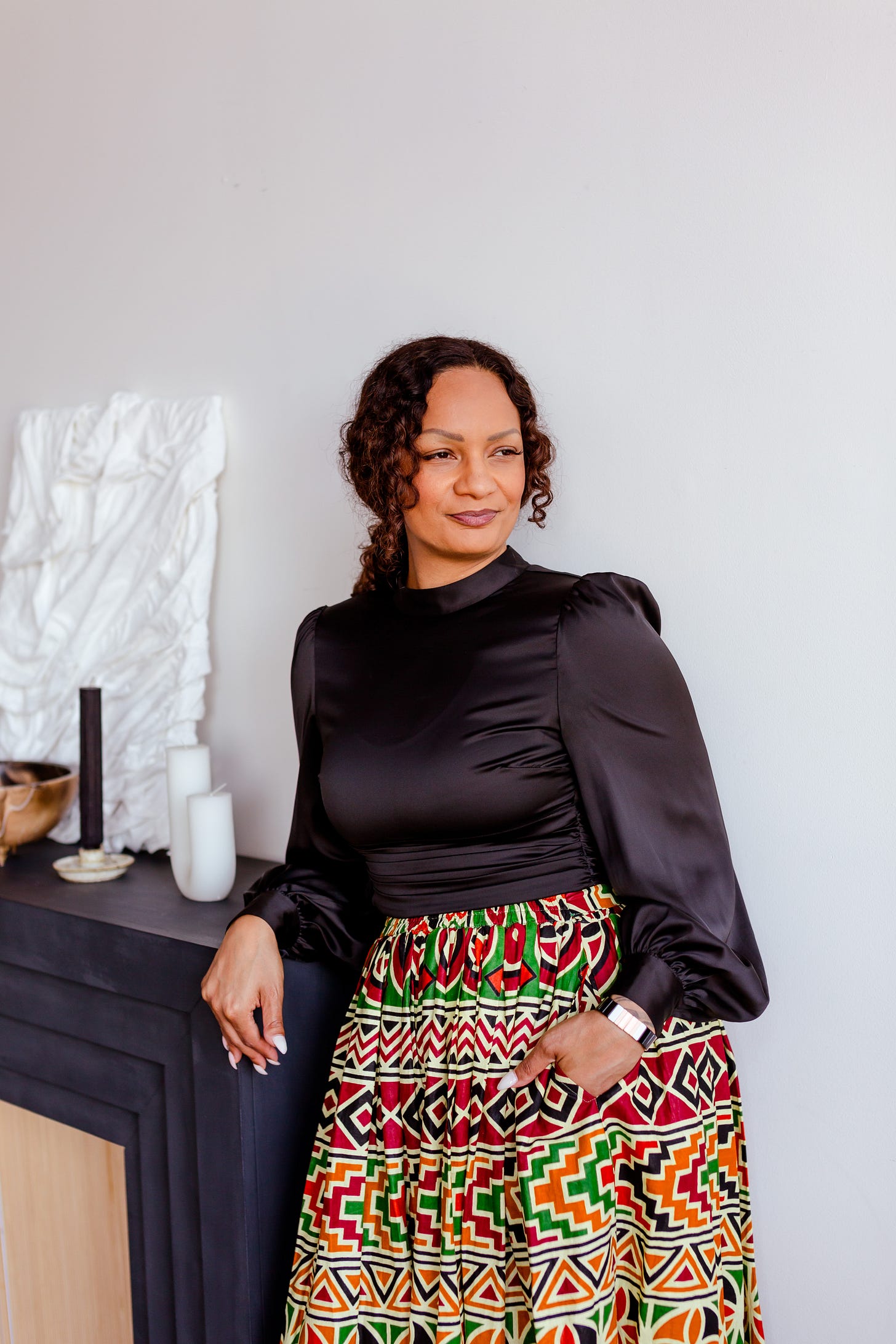#2: An Interview with Chelene Knight
"I look at not only what this final product is going to be in terms of my creative work, I consider the experience of building it. And for me, this is everything."
Welcome to Archipel, an ongoing dialogue between me (Cara Waterfall) and other poets and creatives of all kinds, celebrating the ways we connect through mentorship, community and transitions.
If you are interested in participating, please send me an email by replying to this newsletter or click here.
Archipel was also inspired by my very first poetry mentor, my Dad. When you purchase a subscription to this newsletter, you are paying into a scholarship fund in his name, which will support emerging poets. To learn more about The Donald E. Waterfall Scholarship Fund, click here.
Thank you for reading!
Today’s interview is with Chelene Knight, the author of five books including Let It Go: Free Yourself From Old Beliefs and Find a New Path To Joy (HarperCollins Canada 2024).
She is founder of her own creative studio, Breathing Space Creative through which she’s launched the Thrive Coaching Program where busy creatives can learn how personal development creates the mindset needed to better manage their energy and make space for all the things they are passionate about. www.breathingspacecreative.com
What keeps you coming back to creative work? Why is it worth doing?
I look at not only what this final product is going to be in terms of my creative work, I consider the experience of building it. And for me, this is everything. This is where we have the most control. This is where we get to make mistakes. This is where we ultimately get to know who we are as people and as creatives. I love being able to play within this medium and just see what that experience is like.
There's no one way to be creative. And this is a challenge and also a perk at the same time, because we're creating this world, this space of unknown, which is very exciting. But it's also a challenge, because now we have got to figure out how to navigate through this jungle each and every time we sit down with a project.
And this is true whether I’m writing a new book or building out a program within my own creative studio. What is it going to look like? What do I want this to do in the world? And how do I want to feel on the other side of it? I create what I call project pillars anytime I'm starting a new project.
I'll use a new book as an example. The project pillars are made up of three things: one, your why: Why are you doing this? Why are you writing this? Why are you working within this medium? The second pillar is the book's action. I know why I'm writing this, but what do I want it to do in the world? I try to envision it as a real-life person out there doing something. What do I imagine this book to do? And three: What are my non-negotiables? What are the things that I am unwilling to budge on and why? Why are these things so pivotal for not only the construction of this project, but having it exist in the world in the way that I want? What am I unwilling to change about it?
And these three pillars end up becoming a really powerful decision-making tool. Think about any time you are challenged or asked a question of this project or need to make a decision about it — you've got these three pillars to lean on and I think it's really helpful.
That's what gets me coming back is knowing that I have a lot of control over what I'm experiencing and I think that's really powerful.
What are your biggest challenges when it comes to maintaining a steady creative practice, and how have you overcome them?
The biggest challenge, especially when it comes to creative writing, is answering this question: How do I make a living from this? And so many writers struggle with this, because we are under the impression or we believe in the narrative that all of the money that comes to us must come directly from the book — so book sales, royalties, advances and what have you. But I am of the mindset that having a book in the world is simply a catalyst for a whole bunch of other connected money-making opportunities.
The way that I have been able to overcome this challenge is honestly just saying bye-bye to the scarcity mindset and calling in this abundance mindset, where I'm just obsessed with the possibilities. So having a book in the world, understanding also who I am as a person and a creative — how can I now pitch workshops that are connected to the themes in my book and connect deeply to who I am? How can I maybe put together a course or a coaching program or a community or mentorships or just all these different things that are connected to having a book in the world?
And that's essentially what I've done with Breathing Space Creative is I have built an ecosystem — and not only for writers, but for creatives in general — to move through this land of self-discovery, figuring out who they are are, what do they want, what is this information telling them and essentially getting them to make decisions in a different way and to think differently so that again, we're letting go of the scarcity mindset. We're protective of our energy. We understand our boundaries. What to say yes to. What to say no to. And to have all of that intimately and intricately connected and rooted in something that we believe in. [And] that's just a game changer!
The creative writing industry and the publishing industry have not adapted enough for the writers of today. The world that we are in requires an industry to move along with it, but the industry has kind of remained the same.
I've dedicated my whole self to creating a space for creatives to build new narratives for themselves, because I don't believe in trying to change an industry that isn't ready to be changed — and that's a lot of work to take on! I'm more focused on what I actually have control over, which is how I feel, how I think, the actions that I take and you know and the thoughts that are allowed to blossom in my head.
The biggest challenge is how do you make money from having a book in the world and to do so in a way that really aligns with the uniqueness of me. It’s important to understand that there is no one-size strategy or process and that I have to look at myself and who I am and take a process or strategy and revise it and sculpt it to suit me. And that's what we're missing in this industry. The valuing of self-discovery. We think in very general terms, like we are all trying on the same pair of jeans. Here's how you pitch an agent, here's how you pitch your project. But we forget that this specific strategy might not work for that individual. We have to sculpt it. And the only way to sculpt it is to deeply understand who you are and what that message is that you want to push out.
What advice do you have for someone who wants to start or maintain their creative practice in a new way?
First, you need to understand and get comfortable with the fact that building a solid and sustainable creative practice can only really be a byproduct of the work that you do on yourself.
If you're unwilling to look at yourself, look at your mistakes, look at where you are right now, where you were two months ago, two years ago...If you're unwilling to do that work, then building a sustainable, creative practice will not happen.
You will have these temporary moments of creativity and then you will fall into an excuse of writer's block. You'll say: Oh, I can't write, because I'm feeling stuck or blocked. No, I don't believe in writer's block. I think it's an excuse again, a narrative that we've held on to for too long when really when we look at what is going on with us as individuals and we address that - the root cause - watch how creativity flourishes.
My advice is to get comfortable with understanding who you are, and to get comfortable with being uncomfortable. This is what I do at Breathing Space Creative. We use self-discovery to come into some powerful insights and then use those insights to take action and make decisions in a very different way.
Why does mentorship/community support matter?
I would say especially for writers, we do a lot of this work alone. When we don't understand something or we don't have clear answers, the first thing that we do is we start to spin stories in our heads. We start to think: Oh no, I'm the only one who thinks and feels like this so now I'm going to write this story in my head about it and now I'm going to start to believe this narrative.
When we are in a community space of like-minded people, who are there for the same reason and it starts to feel comfortable and safe, we can ask questions that we might not want to ask our agent, or we might not want to ask our editor. Or we might not feel comfortable sharing with people who aren't creatives. The community aspect becomes really important, because we can widen our own perspectives and let go of some of these narratives that have kept us all stuck for so long.
My coach says in her book: "Don't go to the hardware store for milk." And that really resonated with me, because it's essentially saying, Don't go to the wrong person for the wrong thing. You will walk away disappointed.
If I walked into a hardware store expecting to find milk, I'm immediately going to be disappointed, because that's not what I'll be able to find there and so taking that and thinking about using that metaphor in a way to make decisions about who you share certain things with, based on what you think you need in return.
Having mentors over the last 10 to 12 years as a writer has been powerful for me, and I think right now I am in search of a new mentor and not specifically a writing mentor, but maybe someone on the business side or someone who has done what I'm currently doing and done so in a way that has been highly successful for them.
Who is your dream mentor, living or dead, and why?
I would love to eventually work with someone who understands the value of building something bigger than yourself, and who understands the desire to be around other people who think the way that you do and to be around people who challenge you, but challenge you in a way that is nourishing, not challenge you in a way to debunk or step on your dreams...[and to be] always evolving and understanding too that you can't keep the same mentors. As you grow and evolve as a person, your community and circles have to grow and evolve as well.
(Interview completed via audio clip on August 15, 2024; final edits August 28, 2024.)



